Books
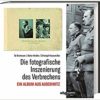
Die fotografische Inszenierung des Verbrechens: Ein Album aus Auschwitz
By Stefan Hördler, Tal Bruttmann, and Christoph Kreutzmüller. This book offers the first critical analysis of photographs taken in the concentration camp of Auschwitz-Birkenau. The photographs, also known as the “Auschwitz-Album,” were discovered by Lili Jacob in the concentration camp Dora-Mittelbau in 1945. The photographs, taken by SS photographers Bernhard Walter and Ernst Hofmann, were…
Read more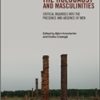
The Holocaust and Masculinities: Critical Inquiries into the Presence and Absence of Men
Edited by Björn Krondorfer and Ovidiu Creangă. In recent decades, scholarship has turned to the role of gender in the Holocaust, but rarely has it critically investigated the experiences of men as gendered beings. Beyond the clear observation that most perpetrators of murder were male, men were also victims, survivors, bystanders, beneficiaries, accomplices, and enablers;…
Read more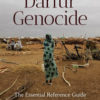
Darfur Genocide: The Essential Reference Guide
Edited by Alexis Herr. Stretching beyond Darfur to situate Sudan within the scope of its African, colonial, human rights, and genocidal history, this reference work explores every aspect of the Darfur Genocide. Covering hundreds of years, this book explores the religious, ethnic, and cultural roots of Sudanese identity-making and how it influenced the shape of…
Read more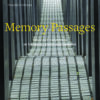
Memory Passages: Holocaust Memorials in the United States and Germany
By Natasha Goldman. For decades, artists and architects have struggled to relate to the Holocaust in visual form, resulting in memorials that feature a diversity of aesthetic strategies. In Memory Passages, Natasha Goldman analyzes both previously-overlooked and internationally-recognized Holocaust memorials in the United States and Germany from the postwar period to the present, drawing on many historical…
Read more
Phenomenal Justice: Violence and Morality in Argentina
By Eva van Roekel. How do victims and perpetrators of political violence caught up in a complicated legal battle experience justice on their own terms? Phenomenal Justice is a compelling ethnography about the reopened trials for crimes against humanity committed during the brutal military dictatorship that ruled Argentina between 1976 and 1983. Grounded in phenomenological anthropology and…
Read more
Imagining the Unimaginable: Speculative Fiction and the Holocaust
By Glyn Morgan. Imagining the Unimaginable examines popular fiction’s treatment of the Holocaust in the dystopian and alternate history genres of speculative fiction, analyzing the effectiveness of the genre’s major works as a lens through which to view the most prominent historical trauma of the 20th century. It surveys a range of British and American…
Read more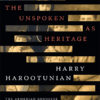
The Unspoken as Heritage: The Armenian Genocide and Its Unaccounted Lives
By Harry Harootunian. In the 1910s historian Harry Harootunian’s parents Ohannes and Vehanush escaped the mass slaughter of the Armenian genocide, making their way to France, where they first met, before settling in suburban Detroit. Although his parents rarely spoke of their families and the horrors they survived, the genocide and their parents’ silence about…
Read more
Reluctant Interveners: America’s Failed Responses to Genocide from Bosnia to Darfur
By Eyal Mayroz. Why do we allow our governments to get away with “bystanding” to genocide? How can we, when alerted to the mass slaughter of innocents, still not take a stand? Reluctant Interveners provides the most comprehensive answers yet to these confronting questions, focusing on the complex relationships between the citizenry, the media, the political elites,…
Read more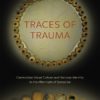
Traces of Trauma: Cambodian Visual Culture and National Identity in the Aftermath of Genocide
By Boreth Ly. How do the people of a morally shattered culture and nation find ways to go on living? Cambodians confronted this challenge following the collective disasters of the American bombing, the civil war, and the Khmer Rouge genocide. The magnitude of violence and human loss, the execution of artists and intellectuals, the erasure…
Read more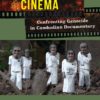
Perpetrator Cinema: Confronting Genocide in Cambodian Documentary
By Raya Morag. Perpetrator Cinema explores a new trend in the cinematic depiction of genocide that has emerged in Cambodian documentary in the late twentieth- and early twenty-first centuries. While past films documenting the Holocaust and genocides in Yugoslavia, Rwanda, and elsewhere have focused on collecting and foregrounding the testimony of survivors and victims, the intimate…
Read more
